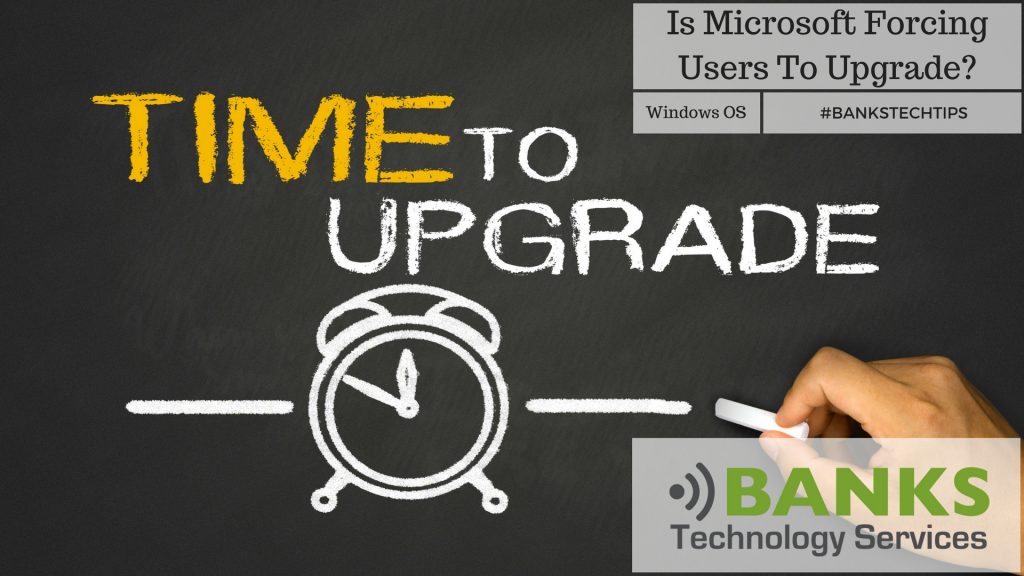Are you receiving an error message stating, “Your PC uses a processor that is designed for the latest version of Windows…”? Recently Microsoft has taken steps to block Windows Updates from installing on computers with certain Processors that are running Windows 7 or Windows 8.X. The processors affected are 7th generation Intel i3, i5, and i7 along with Ryzan processors from AMD and the 8996 processor from Qualcomm. These are not older processors that are being phased out; that might be understandable. These are current generation mainstream processors. If you buy a new PC with an Intel processor, it will most likely have a 7th Generation iX processor in it.
Microsoft has added a document to their website which covers the error message users are receiving:
[promo]“Your PC uses a processor that is designed for the latest version of Windows. Because the processor is not supported together with the Windows version that you are currently using, your system will miss important security updates.”[/promo]
The document lists the affected processors and finally gives a resolution….upgrade to Windows 10.
Why?
Why is Microsoft blocking these updates and almost forcing users to upgrade to Windows 10? There are several reasons which we’ll outline below.
People love(d) Windows 7, even more than they love(d) Windows XP. It’s a stable operating system and users, that are already familiar with it, see little reason to change. Windows 7, as of this writing, still enjoys a sizable market share advantage over Windows 10, despite Microsoft’s aggressive upgrade campaigns.
Windows 10 was released on July 29, 2015. As of this writing, almost two years later, you can still order brand new PC’s with Windows 7 Professional licenses. Remind you, Windows 7 is now 3 Generations behind (Windows 10, Windows 8/8.X, Windows 7). The fact that Dell is still offering Windows 7 PC’s shows the popularity of the operating system. I would imagine that Microsoft’s move will stop major PC manufacturers from selling Windows 7 with PC’s that have affected processors installed. I can’t see a scenario where Dell would sell me a brand new PC that is unable to receive Windows updates.
Microsoft has planned for Windows 10 to be the “last” version of Windows. No, Windows isn’t going away, but Microsoft is shifting to a perpetual upgrade model instead of releasing new versions every few years. Microsoft claims this makes for a more stable and secure environment. The idea is that if Microsoft only has to support one environment, then the user experience will vastly improve. Right now, Microsoft is supporting Windows 7, 8, 8.1, and 10. Fast forward 10 years, Microsoft will be supporting Windows and Windows only. There won’t be other versions that people are hanging on to.
With this new plan, updates are applied across Microsoft’s entire installation base. Everyone gets the same updates, everyone is on the same version. I can certainly see how this would be easier to support than the current model. Currently, computers may have infinite combinations of Operating System versions, critical updates, important updates, and recommended updates. To take this one degree further, software developers, who currently have to account for that infinite number of OS and Update combinations, will likely welcome this development. It creates a much more consistent environment for their software to run. Instead of working with several Windows OS versions and a constant onslaught of updates, they can simply develop software for “Windows”.
Reaction
How will people react to this? There’s already plenty of uproar about Microsoft forcing updates on their users and the “Your PC uses a processor that is designed for the latest version of Windows” error message. My point of view is that it will go like most change today, there will be vocal opposition at the start, it will gradually fade away, and this model will become common and accepted. We shall see.
Conclusion
It will be interesting to see over the coming weeks and months if Microsoft sticks to its guns or if they back off their current stance. I’m certain we’ll see lots more reaction in the days ahead. If Microsoft can deliver on the promised stability and usability enhancements, it will likely be a good long term move. Although, intentionally withholding security patches and updates on brand new computers will be an uphill battle for the Microsoft PR department. Do you have a computer that is receiving the “Your PC uses a processor that is designed for the latest version of Windows” error message? Please let us know in the comments section below.


